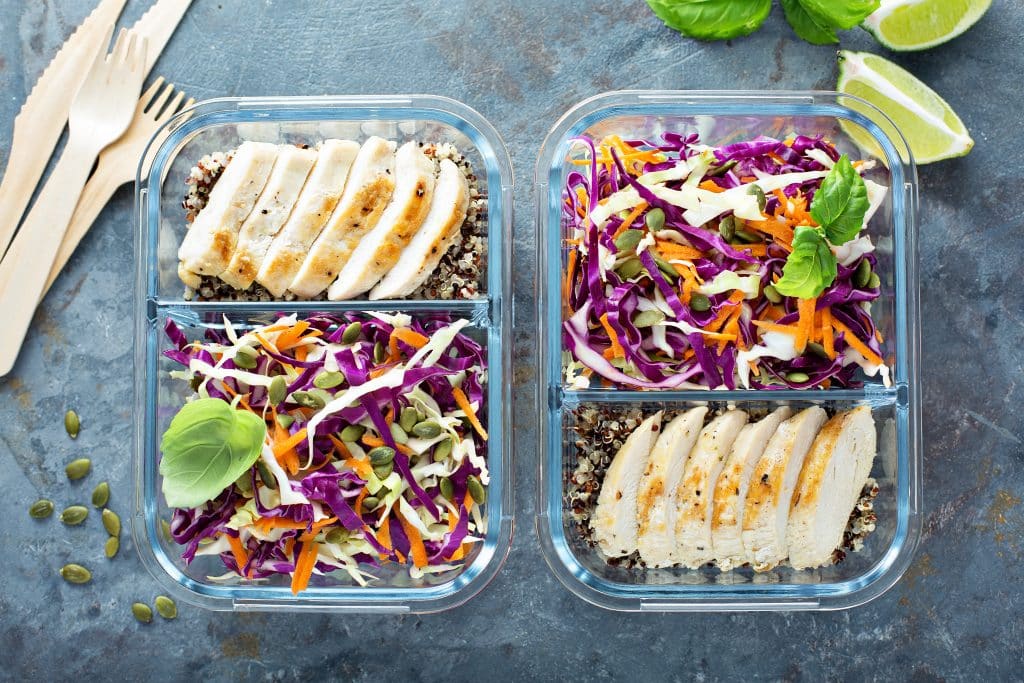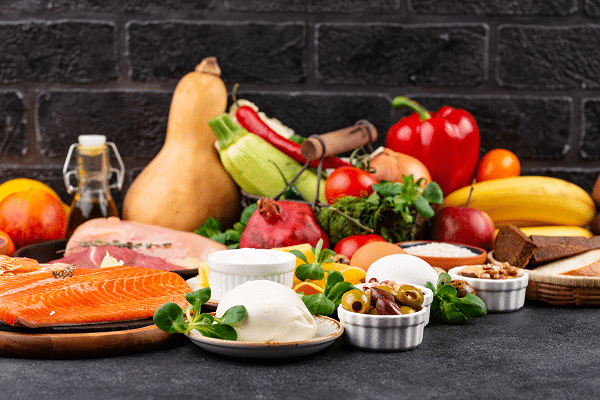Embarking on the journey towards a healthier lifestyle is an exciting step in anyone’s life. At the heart of this transformation is personal nutrition — our daily choices about what to consume. With so many diets, nutritional advice, and health trends floating around, it can seem overwhelming to figure out where to start. Fear not, as this article will guide you step-by-step on kickstarting your nutrition journey, paving the way for a healthier you.
Contents
- 1 Understanding Nutrition For A Healthier Lifestyle
- 2 Embarking On Your Journey To A Healthier You
- 3 Setting Nutrition Goals
- 4 Mastering The Art Of Meal Planning
- 5 Shopping For A Healthier You
- 6 The Importance Of Hydration
- 7 Staying Active: The Perfect Complement To Nutrition
- 8 Keeping Track Of Your Progress
- 9 Addressing Setbacks On Your Journey
- 10 The Bottom Line
Understanding Nutrition For A Healthier Lifestyle

Firstly, it’s essential to understand the building blocks of nutrition. Our bodies require a mix of proteins, carbohydrates, fats, vitamins, and minerals to function optimally. Each of these nutrients plays a critical role in our health. For instance, proteins help repair and build tissues; carbohydrates provide energy; fats help absorb vitamins and protect organs; vitamins and minerals support various functions, from bone health to immune response.
Understanding this, it becomes clear that a balanced and varied diet is the cornerstone of a healthier lifestyle. By consuming various nutrients, we can support our body’s processes, manage our weight, boost our energy levels, and reduce the risk of chronic diseases like heart disease and diabetes.
Embarking On Your Journey To A Healthier You
Now, how do you apply this knowledge to your life? Each person’s nutritional needs are unique, shaped by age, sex, activity level, and health status. What works for someone else may not necessarily work for you. Therefore, the first step in your journey to a healthier you are reflecting on your current dietary habits. Do you eat enough fruits and vegetables? Do you consume too much sugar or processed foods? Recognizing these patterns is key to identifying the areas that need change.
Once you have a clear picture of your current habits, you can start making improvements. Remember, this isn’t about a radical overhaul but making small, sustainable changes over time. If you eat little to no vegetables, add one serving to your daily meals. If you drink a lot of sugary drinks, try replacing one of those with water. These small steps can add up to big changes over time.
Setting Nutrition Goals

Setting nutrition goals is an essential step in your nutrition journey. These goals should be specific, measurable, achievable, relevant, time-bound, or SMART. For instance, instead of setting a vague goal like “eat healthier,” you might set a more specific goal like “eat five servings of fruits and vegetables daily for the next month.”
Your goals should also align with your lifestyle and preferences. If you hate kale, don’t force yourself to eat it because it’s healthy. Instead, find other vegetables you enjoy and incorporate those into your meals. This approach will make your nutrition goals feel less like a chore and more like an exciting exploration of new foods and flavors.
Mastering The Art Of Meal Planning

Meal planning can be a game-changer on your journey to a healthier you. It helps ensure you always have nutritious meals, preventing the last-minute resort to unhealthy fast food or takeout. Plan your meals for a few days or weeks, considering your nutritional goals and personal preferences.
Not sure where to start? Some many free meal-planning templates and apps can guide you. Remember, a balanced meal typically includes a source of protein (like lean meat, fish, or beans), a portion of carbohydrates (like rice, pasta, or bread), and plenty of fruits and vegetables. Aim for variety to ensure you get a wide range of nutrients.
Shopping For A Healthier You

Making healthier choices starts at the supermarket. Opt for whole foods as much as possible — these are natural, such as fruits, vegetables, lean meats, and whole grains. They’re typically more nutrient-dense and less processed than packaged foods. Additionally, take the time to read food labels. Look for products low in added sugars, unhealthy fats, and sodium.
Also, consider the perimeter strategy. Many grocery stores have whole foods on the outer edges and processed foods in the middle aisles. Shopping the perimeter can help you focus on fresh ingredients and avoid the temptation of unhealthy snacks.
The Importance Of Hydration

Water plays a crucial role in our bodies, from maintaining body temperature to assisting digestion and nutrient absorption. Hydration is an integral part of nutrition. Aim for at least eight glasses of water a day, although you may need more if you’re physically active, live in a hot climate, or are pregnant or breastfeeding.
And remember, not all drinks are created equal. While juices, sodas, and coffee can contribute to fluid intake, they can also be high in sugars and calories. Try to make water your primary beverage and turn to other drinks sparingly.
Staying Active: The Perfect Complement To Nutrition

Proper nutrition and regular physical activity are two sides of the same coin. Both are critical for maintaining a healthy weight and reducing the risk of chronic diseases. Aim for at least 30 minutes of moderate-intensity activity, such as brisk walking, swimming, or cycling, most days of the week.
Staying active doesn’t necessarily mean hitting the gym. Find activities you enjoy — dancing, gardening, hiking, or even just playing with your kids or pets. The more enjoyable the activity, the more likely you will stick with it.
Keeping Track Of Your Progress

Monitoring your progress can keep you motivated and accountable on your journey to a healthier you. This could be as simple as keeping a food diary where you jot down what you eat daily. There are also numerous nutrition tracking apps available that can provide valuable insights into your dietary habits.
Remember to track what you’re eating and how you’re feeling. Are you more energized? Sleeping better? Feeling less stressed? These non-scale victories can be just as rewarding and motivating as seeing the numbers on the scale go down.
Addressing Setbacks On Your Journey

Embarking on a personal nutrition journey is not always smooth sailing. There will be days when you slip up, overindulge, or don’t feel like sticking to your plan. When this happens, not beating yourself up or throwing in the towel is essential.
Instead, view these setbacks as learning opportunities. What led to the slip-up? Was it stress, lack of preparation, or simply a special occasion? Once you identify the triggers, you can devise strategies to handle them better in the future. Remember, this journey is about creating a healthier lifestyle, not achieving perfection.
The Bottom Line
Embracing better nutrition and becoming healthier is a journey, not a destination. It’s about making sustainable changes that fit into your lifestyle, listening to your body, and enjoying food in a balanced and mindful way. It may feel challenging at times, but with patience, persistence, and the right knowledge, it can also be an incredibly rewarding experience. So why wait? Start your journey today and discover the potential of a healthier you.


